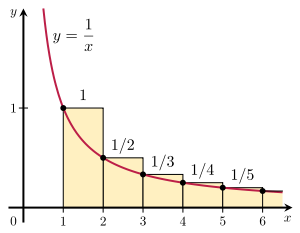Discussion Overview
The discussion revolves around calculating a limit and whether there are special rules or methods applicable to this limit. Participants explore various techniques, including the use of integrals to approximate series and the differentiation of functions.
Discussion Character
- Exploratory
- Mathematical reasoning
- Technical explanation
- Debate/contested
Main Points Raised
- Some participants inquire about special rules for calculating limits, expressing a lack of progress.
- One participant suggests using integrals to find lower and upper bounds for the limit.
- Another proposes approximating a series with an integral, providing specific inequalities for strictly descending functions.
- There is a discussion about the correctness of an antiderivative, with one participant asserting it to be $$\frac{3n}{k^3}$$, which is later challenged.
- Participants engage in a back-and-forth regarding the differentiation of functions and the correct application of the chain rule.
- There are attempts to factor expressions correctly, with some participants expressing confusion over the proper steps in integration.
- One participant suggests that the integral of a specific function leads to an arctangent function, while others challenge the correctness of their factoring and substitutions.
Areas of Agreement / Disagreement
Participants do not reach a consensus on the correct approach to the limit or the validity of the proposed methods. There are multiple competing views on the integration techniques and differentiation processes discussed.
Contextual Notes
Limitations include unresolved mathematical steps, particularly in the integration and differentiation processes. Participants express uncertainty about specific calculations and the application of rules.


